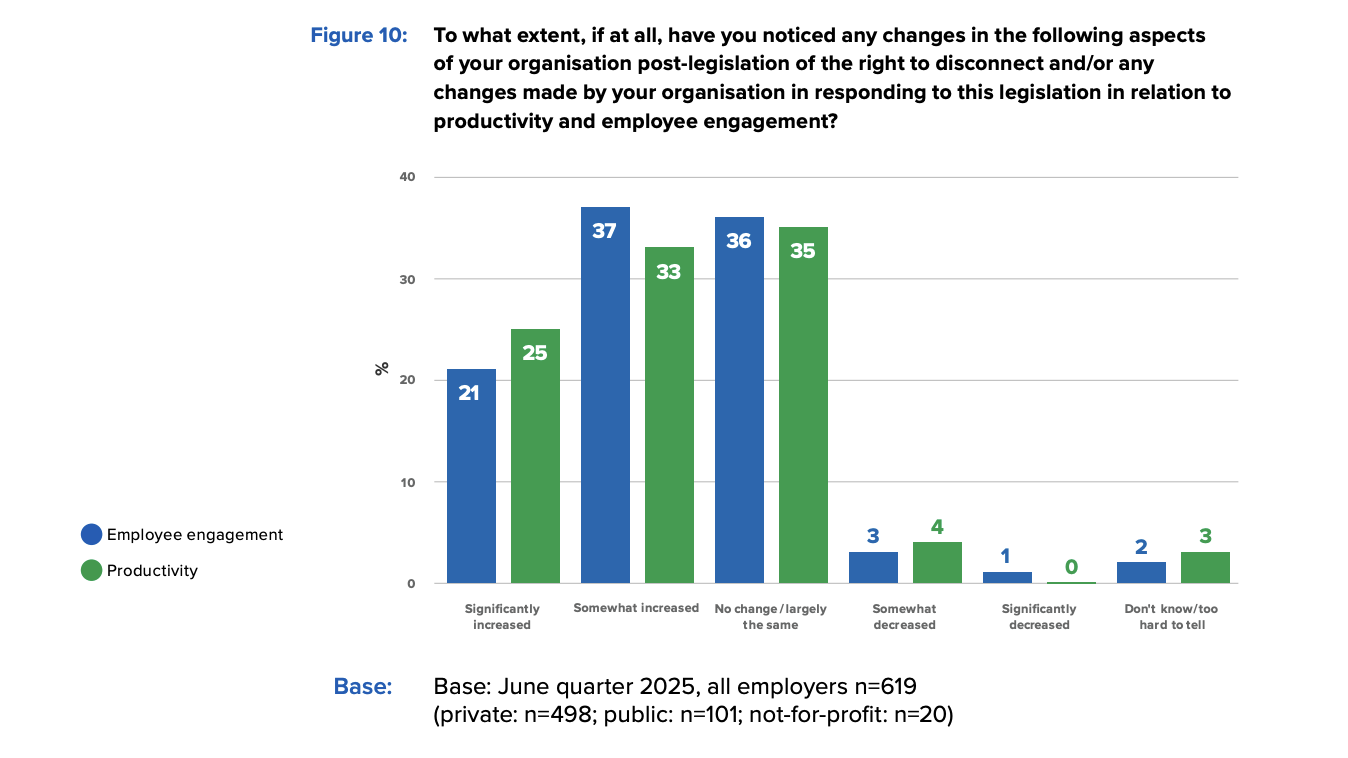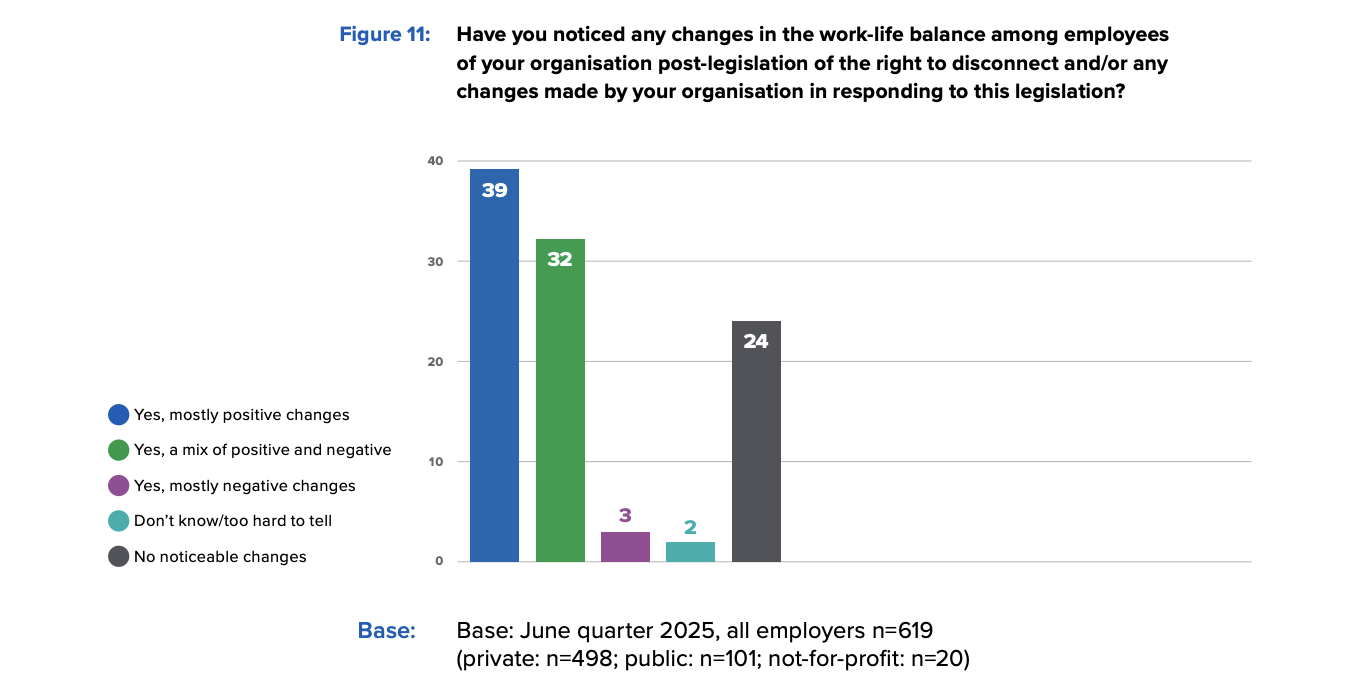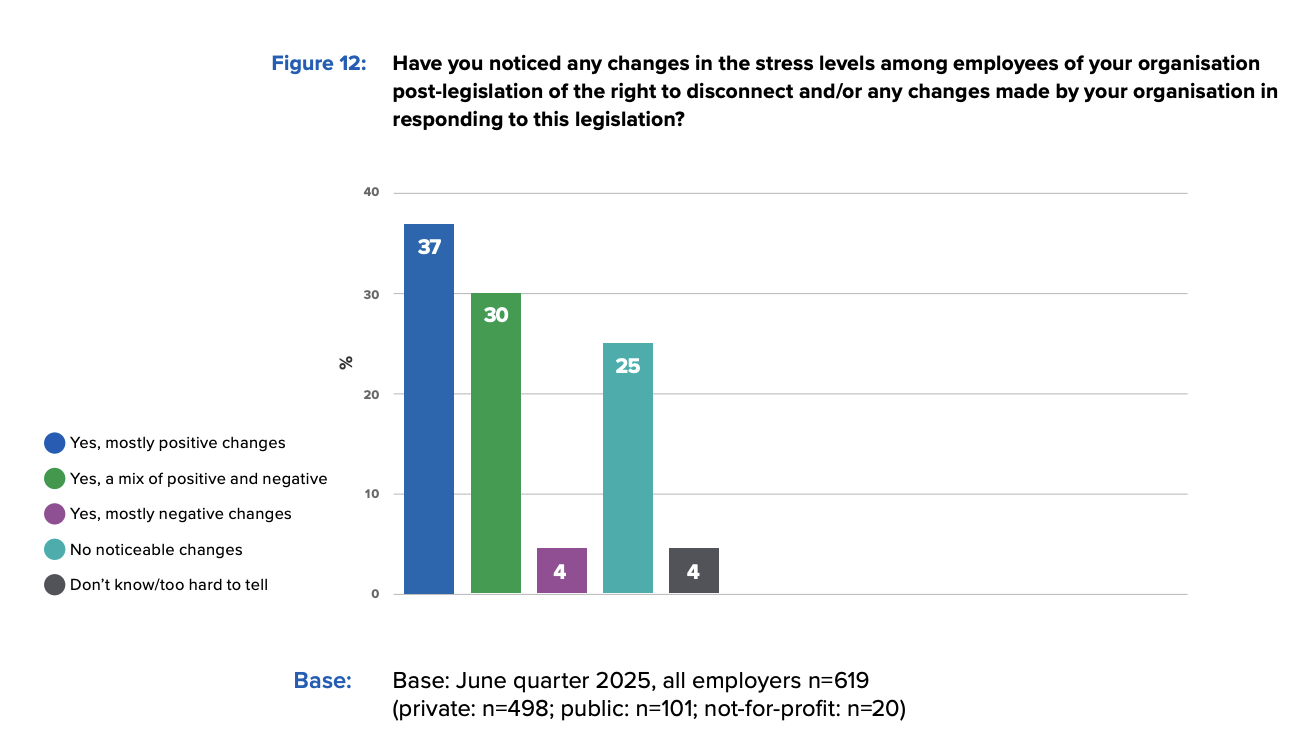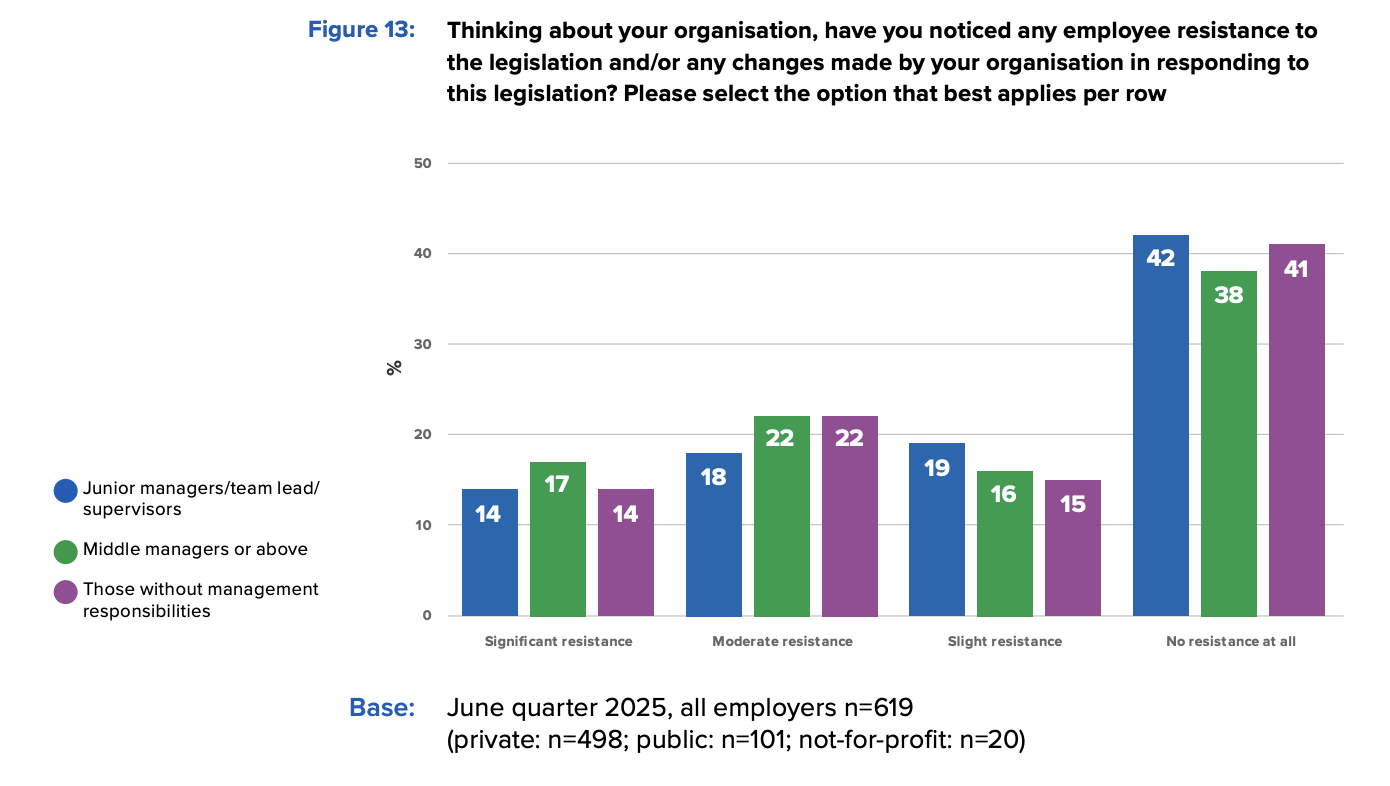
Gains reported in productivity, engagement, work-life balance

More than half of firms in Australia have reported increased engagement and productivity following the implementation of the "right to disconnect" legislation, according to a new report.
Australia's Right to Disconnect, which was implemented in August last year for organisations with 15 or more employees, gives employees the right to refuse to monitor, read, or respond to connect outside their working hours.
More than half a year since its implementation, the Australian HR Institute found that 58% of HR leaders in Australia said the legislation either "significantly increased" or "somewhat increased" employee engagement and productivity levels at their organisations.

"Many employers reported benefits to productivity and employee engagement as a direct result of the introduction of the right to disconnect legislation," the AHRI report read.
This was more apparent among public-sector employers, according to the report, as more than three in four employers there noted benefits on engagement (75%) and productivity (77%).
Meanwhile, the report also found that the right to disconnect has positive changes on their employees' wellbeing.
More than a third of HR leaders surveyed said they saw "mostly positive changes" in their employees' work-life balance (39%) and stress levels (37%).

These positive changes on stress and work-life balance come after the significant reduction in unpaid overtime hours resulting from the right to disconnect.
A report from the Centre for Future Work last year found that the legislation reduced weekly unpaid workload from 5.4 to 3.6 hours per week.

The positive outcomes from the legislation come despite resistance faced by more than half of organisations across its workforce, including junior managers (51%), middle managers or above (55%), and those without management responsibilities (51%).

The Ai Group previously warned that introducing the Right to Disconnect laws may cause "conflict and chaos" in workplaces.
"The laws are an unnecessary overreaction to a problem for which there is little evidence existed. They also introduce legal complexity and conflict to issues that when they have arisen have been dealt with at the workplace level," Innes Willox, Ai Group chief executive, warned last year.
But so far, the AHRI report noted that only 10% of organisations said the right to disconnect impacted their communication practices, with the biggest operational impact recorded in the public sector (23%).
"It appears that the legislation has only had a noticeable operational impact on a small proportion of employers," the report said.
In fact, the report noted that the introduction of the right to disconnect even improved organisations' time management, with 47% reporting it enhanced their ability to manage urgent or time-sensitive matters outside standard working hours.
Australia's right to disconnect policy was implemented for organisations with 15 or more employees in August 2024. It will be implemented for small businesses starting August 26, 2025.